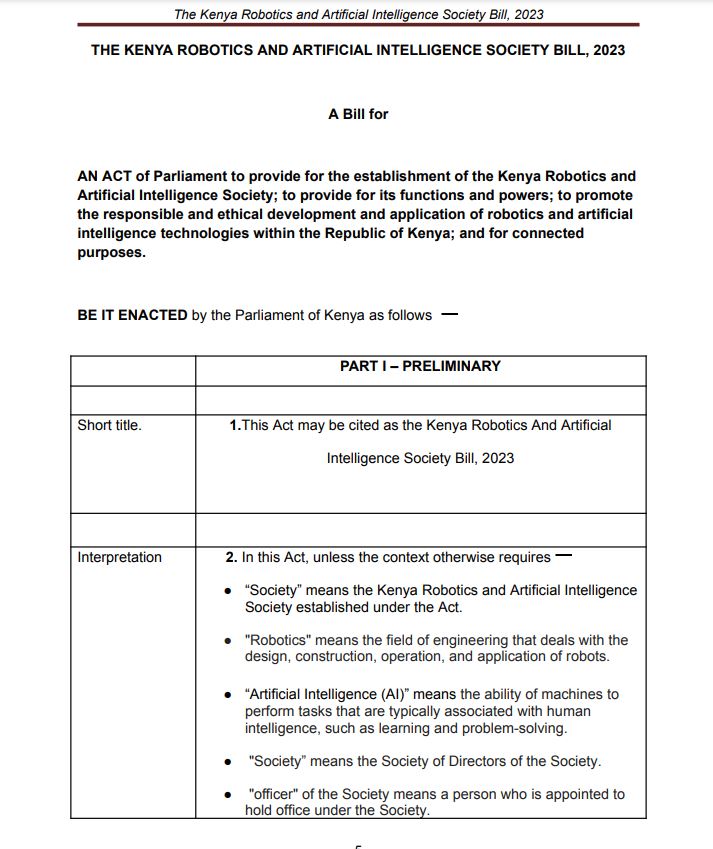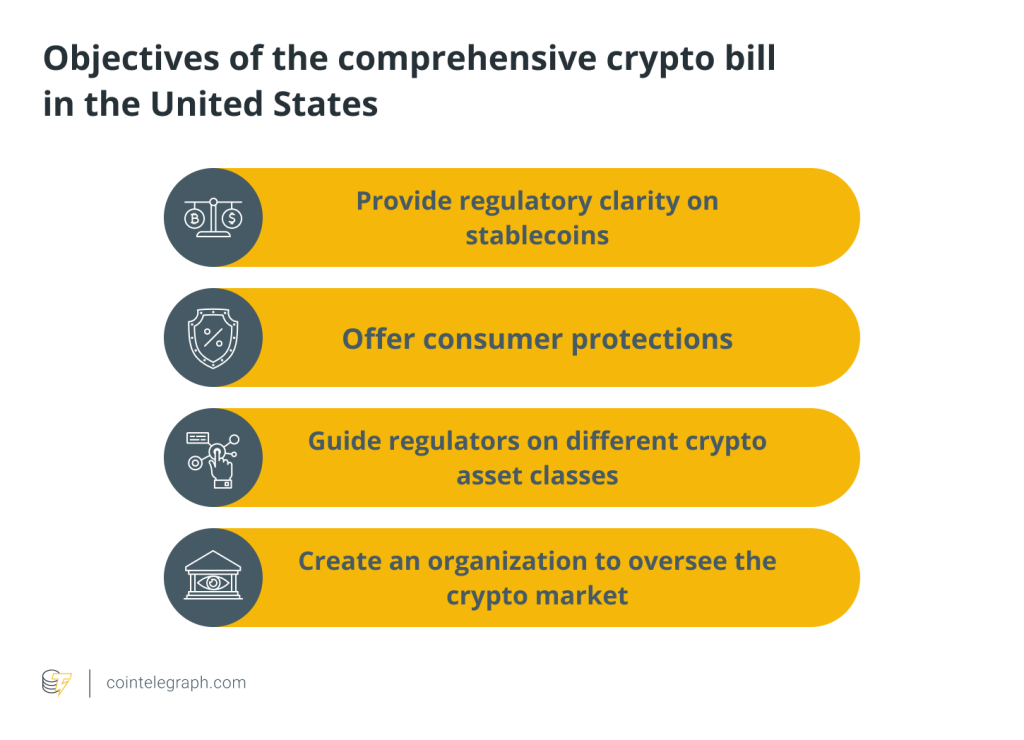Kenyan IT experts demand rejection of flawed AI bill

Experts reportedly informed the National Assembly committee that stakeholders in the AI and robotics field were not consulted during the drafting of the bill.

Kenyan information technology (IT) experts have urged Parliament to reject the 2023 Robotics and AI Society Bill, citing numerous significant shortcomings.
According to local media, the experts appeared before the National Assembly’s Communication, Information, and Innovation (CII) committee chaired by Dagoreti South MP John Kiarie during a session to mark this year’s International Safer Internet Day. The experts reportedly informed the committee that stakeholders in the artificial intelligence (AI) and robotics field were not consulted during any phase of drafting the bill.
In the bill titled the Kenya Robotics and Artificial Intelligence Society Bill 2023, entities are described as unlicensed if they have yet to register their robotics and AI ventures with the Robotics Society of Kenya (RSK).

The proposed legislation aims to impose penalties, including fines of up to $6,269 (KES 1 million), a potential two-year prison sentence, or both, on unlicensed entities involved in the operation of robotic and AI businesses if they do not register with the RSK.
The RSK is a proposed body that will oversee and support the growth of the robotics and AI sector by creating rules and guidelines with other authorities. It will also ensure that companies follow these rules and provide advice to the government on new trends in AI and robotics.
Alex Gakuru, the Director of the Center for Law in Information Technology and head of the Kenyan American Chamber of Commerce (AMCHAM) delegation, reportedly stated in the meeting that the bill should be withdrawn for additional consultation with stakeholders, emphasizing that the bill will precipitate a national disaster if enacted in its current form.
Related: Web3 faces regulatory hurdles in Africa, slowing progress
According to Mr. Gakuru, the bill doesn’t adequately address artificial intelligence concerns but focuses primarily on regulating the robotics sector. As per the report, he expressed that the poorly drafted bill might face legal challenges unless amended.
Kenya has been ranked fifth in Africa on the government’s readiness to implement AI in delivering services to the public. The 2022 edition of the annual Government AI Readiness Index released by Oxford Insights shows Kenya’s overall score of 40.36 percent, placing it behind Egypt, South Africa, Tunisia and Morocco.
Over the last decade, Kenya’s total value of investment in AI is estimated at $81.5 million (KES13 billion), which hardly compares with South Africa’s $1 billion (KES165.8 billion) and Nigeria’s $378 million (KES 60.3 billion), according to Microsoft’s “Artificial Intelligence in the Middle East and Africa Outlook Report.”
Mr. Kiarie reportedly mentioned that the stakeholders’ concerns would be considered during public participation in the bill.






… [Trackback]
[…] Find More on that Topic: x.superex.com/news/ai/4284/ […]
… [Trackback]
[…] Find More on on that Topic: x.superex.com/news/ai/4284/ […]
… [Trackback]
[…] Read More Info here to that Topic: x.superex.com/news/ai/4284/ […]
… [Trackback]
[…] There you can find 75643 more Info to that Topic: x.superex.com/news/ai/4284/ […]
… [Trackback]
[…] Information to that Topic: x.superex.com/news/ai/4284/ […]
… [Trackback]
[…] Info to that Topic: x.superex.com/news/ai/4284/ […]
… [Trackback]
[…] Read More Info here to that Topic: x.superex.com/news/ai/4284/ […]
… [Trackback]
[…] Find More Information here to that Topic: x.superex.com/news/ai/4284/ […]
… [Trackback]
[…] Information on that Topic: x.superex.com/news/ai/4284/ […]
… [Trackback]
[…] There you will find 44106 more Information on that Topic: x.superex.com/news/ai/4284/ […]
… [Trackback]
[…] There you will find 91637 more Info on that Topic: x.superex.com/news/ai/4284/ […]
… [Trackback]
[…] Find More Info here to that Topic: x.superex.com/news/ai/4284/ […]
… [Trackback]
[…] Information on that Topic: x.superex.com/news/ai/4284/ […]
… [Trackback]
[…] There you will find 34971 additional Info to that Topic: x.superex.com/news/ai/4284/ […]
… [Trackback]
[…] Read More on that Topic: x.superex.com/news/ai/4284/ […]
… [Trackback]
[…] Find More on on that Topic: x.superex.com/news/ai/4284/ […]
… [Trackback]
[…] Information to that Topic: x.superex.com/news/ai/4284/ […]
… [Trackback]
[…] Information to that Topic: x.superex.com/news/ai/4284/ […]
… [Trackback]
[…] Read More Information here to that Topic: x.superex.com/news/ai/4284/ […]
… [Trackback]
[…] Information to that Topic: x.superex.com/news/ai/4284/ […]